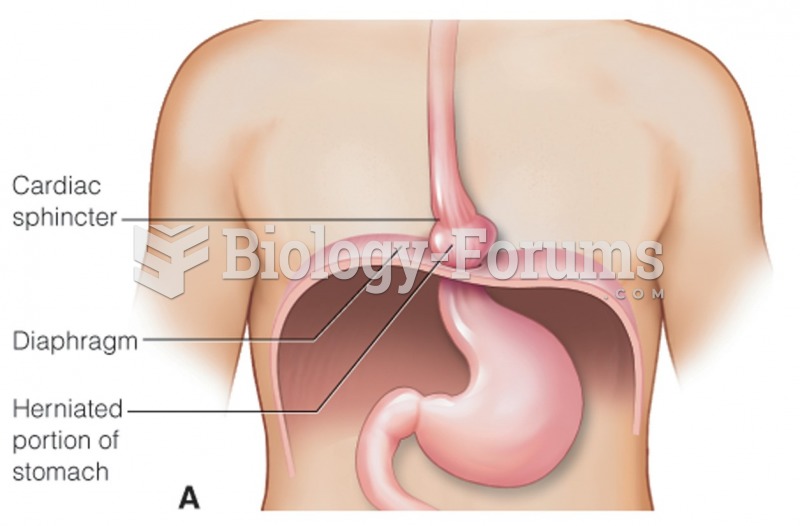|
|
|
Bacteria have been found alive in a lake buried one half mile under ice in Antarctica.
Cyanide works by making the human body unable to use oxygen.
According to the American College of Allergy, Asthma & Immunology, more than 50 million Americans have some kind of food allergy. Food allergies affect between 4 and 6% of children, and 4% of adults, according to the CDC. The most common food allergies include shellfish, peanuts, walnuts, fish, eggs, milk, and soy.
Normal urine is sterile. It contains fluids, salts, and waste products. It is free of bacteria, viruses, and fungi.
The first successful kidney transplant was performed in 1954 and occurred in Boston. A kidney from an identical twin was transplanted into his dying brother's body and was not rejected because it did not appear foreign to his body.
 A hiatal hernia or diaphragmatocele. A portion of the stomach protrudes through the diaphragm into t
A hiatal hernia or diaphragmatocele. A portion of the stomach protrudes through the diaphragm into t
 An inguinal hernia. A portion of the small intestine is protruding through the abdominal muscles int
An inguinal hernia. A portion of the small intestine is protruding through the abdominal muscles int




